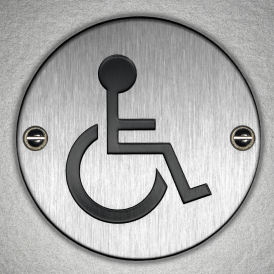Incapacity benefit reassessment begins
Plans to reassess people who receive incapacity benefit to check if they are “fit for work” will be rolled out this week. One disabled campaigner tell Channel 4 News her fears over the changes.

The first letters are being sent out asking some of the 1.6 million incapacity benefit claimants to submit to reassessments.
By the end of the week 7,000 people will have been contacted, rising to 10,000 a week by the end of April, with the first assessments taking place in June.
It follows pilot schemes in Burnley and Aberdeen – almost a third of people who were reassessed in the two areas were declared fit to work. They were transferred onto the less generous Jobseeker’s allowance (JSA).
Thirty eight per cent of people were judged able to go back to work with the right help while 30 per cent were given unconditional financial support and not expected to look for employment.
Reducing the benefits bill
Writing in The Sunday Telegraph, employment minister Chris Grayling said: “The trial results show that, if replicated nationally, we could expect around half a million people to be found fit for work over the next three years as the reassessment exercise is completed.”
Read more: Is benefits culture a myth?
Another 600,000 of the 1.6 million people who will be tested are likely to be able to find work “with the right support”, he added.
Private companies will be used to help people off benefits and back into work, and rewarded with fees of up to £14,000 for each individual case.
The coalition’s plan was first put forward by Mr Grayling when the Tories were in opposition more than three years ago. The then Work and Pensions Secretary James Purnell came forward with similar proposals, but they are believed to have been blocked by Gordon Brown.
Mr Grayling warned that claimants who refused to take part in the schemes would lose their benefits.
But the Government has insisted people genuinely too sick to work will continue to receive unconditional support from the state, and will not be expected to look for work.
They will also receive a higher rate of benefit than they currently receive.
System ‘not working well’
Charities have voiced concerns that the test for people on incapacity benefit – the Work Capability Assessment (WCA) – is unfair.
They say it is too narrow and not adequate for disabled people whose conditions fluctuate on a daily basis.
Helen Thomas has MS and is on Employment and Support Allowance (ESA). She has had two Work Capability Assessments and told Channel 4 News they are "awful".
"They expect everything that's wrong with you to fit into a box, if it doesn't then they don't count it.
"I have MS which is invisible, fluctuating and progressive. They ask silly questions like can you use a computer. They don't take into account that yes maybe you can, but not as well as someone without a condition.
"I read the papers and see comments about scroungers: there was one in the local newspaper recently saying 'get these scroungers off to work' and I thought my god that's me. I look normal and healthy and if I stumble around people think I'm drunk
"It's really scary. It's not like I like being like this – if they want to take benefits from me I'm quite happy as long as they take my MS at the same time. No one wants to be a 34-year-old and facing never being able to go to work again.
"I am not going to get better. The most I can hope for is not get worse. Why spend millions of pounds reassessing people who aren't going to get better? It's a blatant waste of money. It is distressing."
Charities are also worried that disabled people won’t be able to find jobs.
Director of Policy at Disability Alliance, Neil Coyle, told Channel 4 News the economic conditions make the situation even tougher: “The current Labour Market Slack (people looking for full time work) is estimated at over 5 million but there are less than 500,000 jobs being advertised.
We are terrified about the consequences. People who have been defrauding the system don’t care. They’re fit for work. The rest of us are not. Kaliya Franklin
“Such significant demand for work undermines disabled people’s chances of securing employment and, with more disabled people working in the public than private sector, Government cuts may also disproportionately limit disabled people’s chances of finding jobs.”
Kaliya Franklin has Ehlers-Danlos Syndrome which affects the joints and skin. She is currently on income support, not incapacity benefit, but will have to take the Work Capability Assessment at some point in the future.
She told Channel 4 News she was “saddened and depressed” about the prospect of another assessment: “It frightens me. One of the most important points is that the only people this is affecting are genuine claimants.
“We are terrified about the consequences. People who have been defrauding the system don’t care. They’re fit for work. The rest of us are not.”
Kaliya, who blogs about her situation at Benefit Scrounging Scum, said: “Working is always going to be incredibly difficult for me. I’m not well enough to work but it doesn’t stop me wanting to work.
“In the real world employers need stability. I might be throwing up and 9 o’clock every morning and then I might have a few good weeks.”